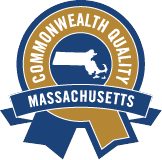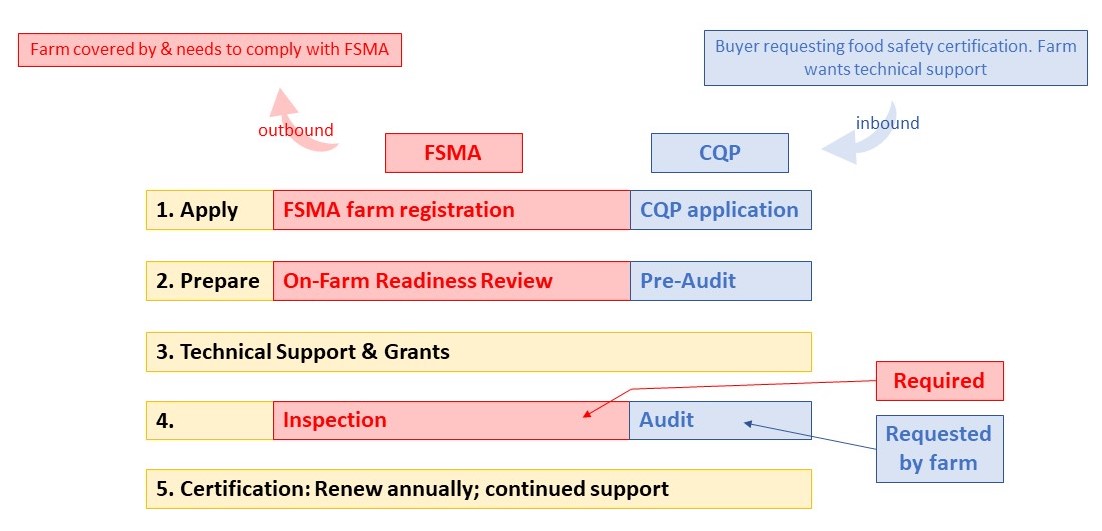Produce Safety Certification
The Commonwealth Quality and USDA Good Agricultural Practices (USDA-GAP) Programs are both voluntary food safety certification programs that growers may enter into if they have buyers requesting certification or if they otherwise want to be certified in food safety. For both programs, growers request and undergo audits, which are conducted by either the Massachusetts Department of Agricultural Resources (MDAR) or USDA officials, and which they must pass to obtain food safety certification.
USDA-GAP
The Massachusetts Department of Agricultural Resources (MDAR) will not be conducting USDA GAP or Harmonized GAP audits after the 2018 growing season. Massachusetts growers may still participate in the USDA-GAP program but must do so directly through the USDA. For more information, please visit the USDA website, here.
The UMass USDA-GAP manual is available below for use as a resource in Massachusetts but has not been updated since 2013 and does not include any information regarding FSMA.
Commonwealth Quality Program (CQP) 
CQP is a voluntary food safety certification program unique to Massachusetts, implemented by MDAR. CQP follows the same requirements as the Produce Rule of the Food Safety Modernization Act (FSMA), essentially making the program voluntary compliance with FSMA. Growers who are required to comply with FSMA and growers who choose to participate in CQP will both go through the same process to obtain certification, as shown in the following diagram:

Two notes on CQP compliance in the age of FSMA:
- The FDA has extended compliance dates for agricultural water testing requirements within FSMA until 2022, at the earliest. Until FSMA water testing requirements are implemented, growers participating in CQP must test their water at least once per source per season, but preferably three times per source per season (before, during, and after the main harvest season).
- FSMA currently does not include standards for manure use but has reserved space to add specific requirements once applicable research has been reported. Until then, growers participating in CQP should adhere to National Organic Program manure use standards, which state that raw manure must be applied at least 90 days before harvest if the harvestable portion of the crop does not touch the ground (e.g., tomatoes, peppers) or 120 days before harvest if the harvestable portion of the crop does touch the ground (e.g. lettuce, carrots).
Technical support, shown as step 3 in the diagram above, is available to CQP participants through the Massachusetts Produce Safety Program:
Massachusetts Produce Safety Program
Massachusetts Department of Agricultural Resources
30 Riverside Drive, Suite 202
Lakeville, MA 02347
Phone: (617) 626-1721
Email: michael.botelho@state.ma.us
MDAR has deployed five regional Produce Safety experts who will provide CQP certification support (as well as FSMA implementation) across the state. See the following fact sheet for MDAR Produce Safety Team contact info.
For more information, please visit the MDAR CQP website.

